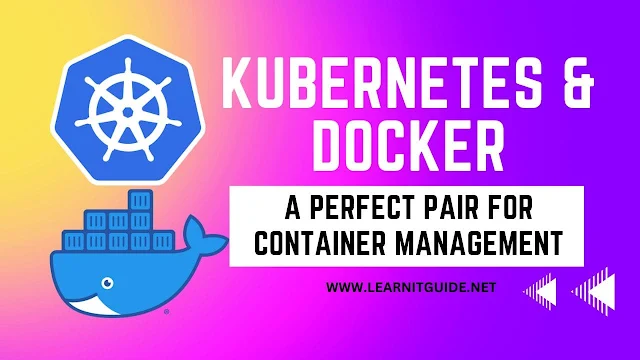This post will help you understand about - Kubernetes and Docker: Perfect Pair for Container Management.
If you are interested in learning, Request you to go through the below recommended tutorial.
DevOps Full Course Tutorial for Beginners - DevOps Free Training OnlineDocker Full Course Tutorial for Beginners - Docker Free Training Online
Kubernetes Full Course Tutorial for Beginners - Kubernetes Free Training Online
Ansible Full Course Tutorial for Beginners - Ansible Free Training Online
Openstack Full Course Tutorial for Beginners - Openstack Free Training Online
Let's Get Started.
Kubernetes and Docker - A Perfect Pair for Container Management
Kubernetes and Docker are two popular technologies in the world of container management. Kubernetes is an open-source platform for automating the deployment, scaling, and management of containerized applications, while Docker is an open-source platform that makes it easier to create, deploy, and run applications by using containers.
Docker provides a simple way to package and deploy applications as containers, making it easy to share and manage applications across multiple environments. It also provides a consistent environment for application deployment, making it easier to test and deploy applications.
Kubernetes, on the other hand, provides a complete solution for managing containers and the resources they consume, such as CPU, memory, and storage. It also provides a scalable and flexible platform for running containerized applications. Kubernetes can automate the deployment, scaling, and management of containers, making it easier to manage large-scale applications and microservices.
Together, Kubernetes and Docker make a perfect pair for container management. Docker provides a simple and consistent way to package and deploy applications as containers, while Kubernetes provides a complete solution for managing containers and their resources.
Kubernetes can manage Docker containers natively, which makes it easy to deploy and manage Docker containers in a production environment. This allows developers to focus on writing and testing their applications, while Kubernetes takes care of the deployment and management of the containers.
Kubernetes also provides a number of features that make it easy to manage containers in a production environment, such as automatic rollouts, rollbacks, and self-healing. It also provides a way to automate the deployment and scaling of containers, making it easier to manage large-scale applications and microservices.
Another advantage of using Kubernetes with Docker is the ability to manage multiple containers and their resources as a single unit. This makes it easier to manage containers and their resources, especially in large-scale applications and microservices.
In conclusion, Kubernetes and Docker are a perfect pair for container management. Docker provides a simple and consistent way to package and deploy applications as containers, while Kubernetes provides a complete solution for managing containers and their resources. Together, they make it easier to deploy, scale, and manage containerized applications in a production environment.
That’s it for this post, Hope this post helped you to understand about Kubernetes and Docker, A Perfect Pair for Container Management.
Keep practicing and have fun. Leave your comments if any.
Support Us: Share with your friends and groups.
Stay connected with us on social networking sites, Thank you.








0 Comments